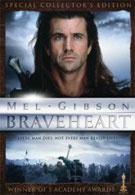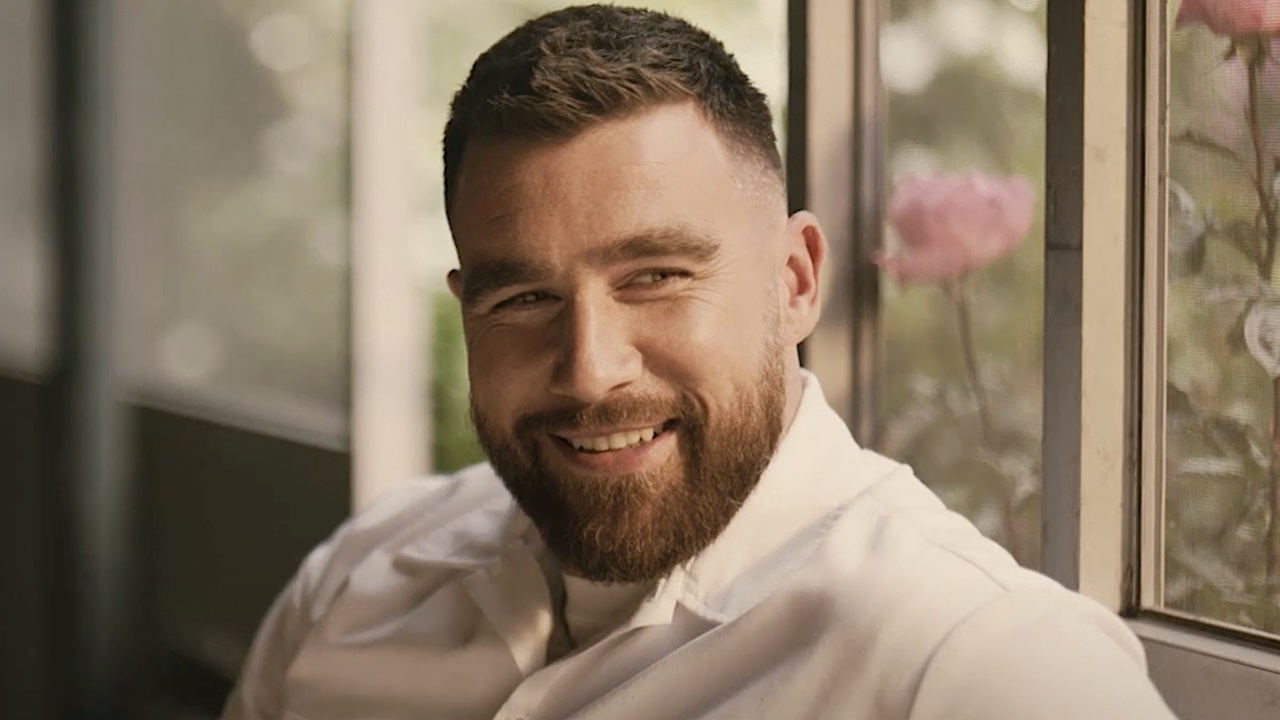Although I’m not a fan of all four movies Mel Gibson has directed so far, he sure proved he has all the necessary skills to helm a timeless masterpiece. His best, beyond a doubt, is 1995’s medieval adventure Braveheart, which scored a worldwide success at the box office and even snatched five Academy Awards, including best picture, best director, and best cinematography. Now Gibson’s epic makes a quick comeback on DVD, and watching the digitally remastered version definitely makes me forgive him for his latest, more or less disappointing escapades. Let the battle begin! The film kicks off in Scotland in 1280. The King of Scotland has died without a son, and King Edward Longshanks of England (Patrick McGoohan) wants to claim Scotland as his own. Hundreds of Scots repeatedly struggle to fight the English army for many years, but they do so in vain. Longshanks is always the most powerful leader and quickly crushes the resistance, pushing Scotland into a state of misery and despair. Hope arrives many years later in the form of a man who shows no fear and vows to help liberate his people from the claws of tyranny. His name is William Wallace (Mel Gibson), a proud Scotsman who was forced to leave his home after his father was killed in battle. Soon after the return to his homeland, Wallace secretly marries the beautiful Murron MacClannough (Catherine McCormack), and attempts to elope with her. When English soldiers uncover their plans and brutally murder Murron for insulting the King of England, Wallace swears to seek bloody revenge. Recruiting a small army of brave Scots willing to fight for freedom, Wallace embarks on a dangerous quest to kill every Englishman who dares to step in his way.
Braveheart succeeds in many ways, but one reason why I treasure the movie so much is because it perfectly depicts the cruelty of King Longshanks. He’s as oppressive as an influential leader can get, and his ways of making the Scots suffer are deeply disturbing. Instead of just killing his enemies, he dares to humiliate them by robbing them of their freedom and passing humiliating laws that strip them off their dignity. One of these barbarous rules, for instance, is the prima nocte, which gives every English soldier the noble right to sleep with a recently married Scottish woman. Gibson sincerely illustrates the growing despair among the Scottish people, and although the movie has its emotional and dramatic moments, the plot is mostly free of any saccharine elements. If there’s one little flaw that challenges the film’s credibility, it’s Wallace’s short affair with Longshanks’ daughter-in-law Princess Isabelle (Sophie Marceau). The plot does not necessarily suffer from it a lot, but it might just as well have been left out completely.
Even though the movie runs for three hours, it never drags or gets repetitive. Gibson’s smooth direction is pitch-perfect, and the tale of Braveheart is an inspiring one. In its core, the film follows the quest of a man who brings courage to his people and solemnly promises to liberate them from the terrors of Longshanks. Wallace is the first one who is fearless enough to start a long-lasting rebellion. Word about him spreads everywhere quite quickly, and people all over Scotland soon join him on his mission to seek freedom. The movie beautifully chronicles the events of a man who fights with passion and inspires a people with his refusal to give up and his quest to seek revenge and steal back their freedom. His strong words can bring even the most fearful Scots together, and Wallace’s influential speeches account for some of the most powerful scenes in the entire movie.
Speaking of memorable scenes, the battles of Stirling and Falkirk will have you sit on the edge of you seat. The action sequences in the film are bloody and exhibit intense violence, but they’re also incredibly suspenseful and nail-biting. The atrocities of war are hard to swallow at times, but Gibson portrays them with a true sense of reality. The fight at Stirling is undoubtedly the most intense and impressive battle, and while today’s big-budget war epics use a large amount of CGI to create thousands of digital soldiers, Gibson hired more than a thousand real people for these unique scenes. The absence of digital effects, Gibson’s clean direction and John Toll’s excellent photography make the fighting look more real and convincing.
Fighting and screaming sounds like an easy acting job, but the stakes are quite high in a historical film that tries to take itself seriously. Gibson offers a powerful performance as the leader of the Scots, and his triumphant voice continuously reinforces the inspiring dialogues written by Randall Wallace. Brendan Gleeson convincingly plays Hamish Campbell, Wallace’s closest friend in battle, and although we don’t get to see him that often, he eases the atmosphere every now and then with a little bit of subtle humor. The film also includes excellent performances by Brian Cox, Sophie Marceau, Angus Macfayden and Patrick McGoohan as the ruthless King Longshanks.
Braveheart truly revived the genre of historical epics that dig up the past and supply cinemagoers with impressive battles. The film was a great success worldwide and scored well with critics and audiences, and catching it on DVD for probably the last time is a real treat. Now, just wait until you find out more about the greatness of the special features on the second disc. You’ll definitely see why this edition is one not to miss at any cost. Follow me brave readers! As expected, this special collector’s edition comes loaded with a horde of interesting special features. Besides a six-minute photo montage with stills from the film and pictures from the set, the bonus material also includes two theatrical trailers and a 21-minute interview with Randall Wallace, the screenwriter of Braveheart. Wallace speaks about how he got the idea to write the script and what influenced him during the writing process. He also briefly mentions his first meeting with Mel Gibson and talks in length about the real William Wallace, his inspiring words and his quest to seek freedom. As a short history lesson, this piece is certainly one not to miss.
The absolute highlight on the disc is the highly informative three-part behind-the-scenes look. Clocking in at 50 minutes, the making-of includes great footage from the set and features a compelling commentary by Mel Gibson. He tells his viewers how he got to direct the film in the first place and how he prepared for his challenging role as William Wallace. The second part of the featurette focuses on the structure of the film’s biggest battle scenes, and features an insightful interview with Kevin De La Noy, who acted as unit manager on the production. He offers interesting details about the shooting of the battle scenes and discusses how hard it is to gather 1,400 men and put them through costumes and make-up in time for the shooting. Gibson also moves on to discuss several challenges he encountered during the production of this three-hour epic, and her refers to his work as director and lead actor as going “through a marathon.” This piece is particularly interesting because it reveals all sorts of valuable information about the making of this Oscar-winning picture.
Your Daily Blend of Entertainment News
Although not directly linked to the making of the film, “Tales of William Wallace” offers tons of background information on the hero William Wallace. In what could as well have been a special report on the History Channel, this featurette focuses on who Wallace was, what he stood for and what techniques he used in structuring his battle strategies and speeches. If that’s not enough for you, I suggest you then turn your attention to the archival interviews with members of the cast, who all offer their own interpretation of William Wallace. James Robinson, Sophie Marceau and Catherine McCormack, among others, briefly speak about the character they play and in what way they had an immediate influence on Wallace’s life during the battle against the English.
I have to admit I didn’t listen to all of Mel Gibson’s compelling commentary, but I can recommend it. Gibson reveals some informative facts about the shooting of the movie, and closely discusses his methods of direction. He also pays tribute to all his actors and generally adds interesting details about the scenes and the production of Braveheart. If you desire to watch the film a second time you can easily turn on the commentary, because Gibson often leaves long enough pauses and never talks too loud. He’s enjoyable to listen to and refrains from babbling on for three hours without any breaks.
The special features section is really worth going for the new edition, so in case you haven’t been courageous enough to buy Braveheart on DVD, go make some room in your DVD collection right now. No really, it’s worth it.

